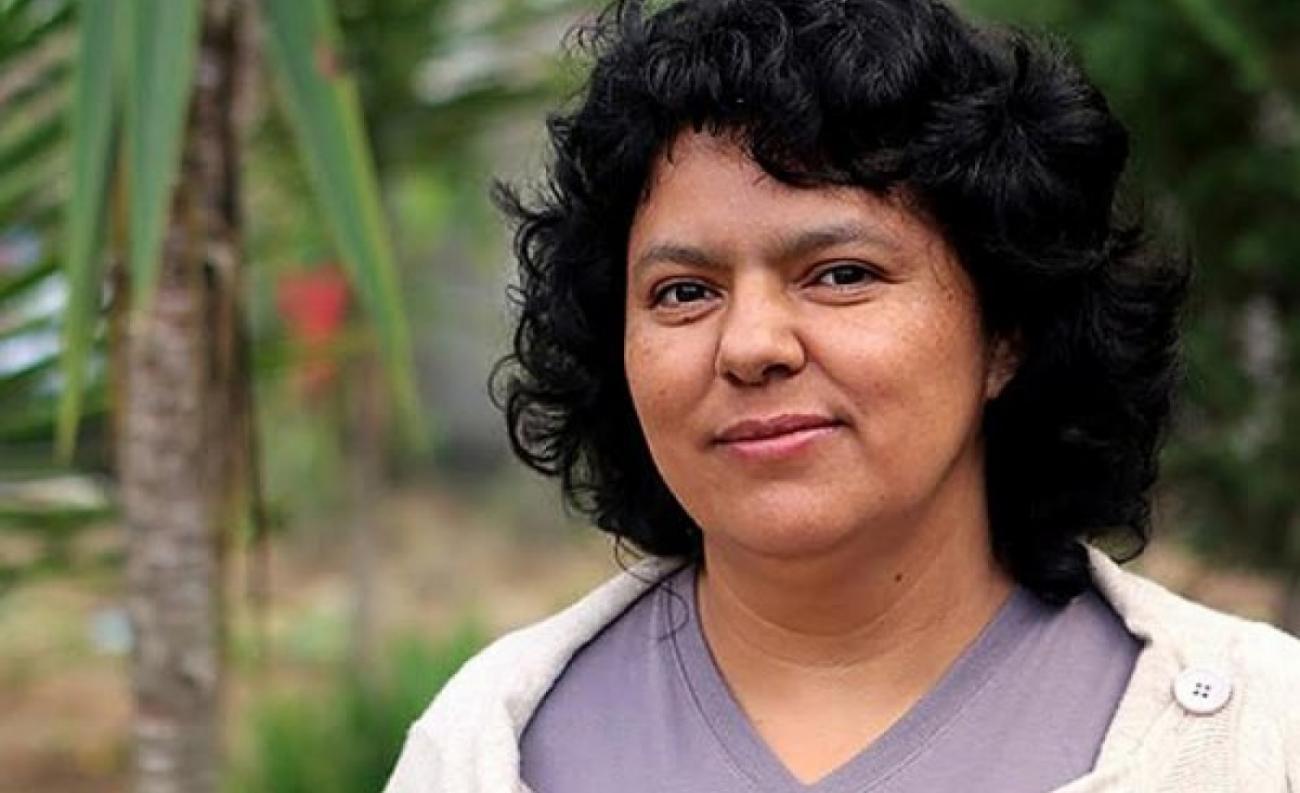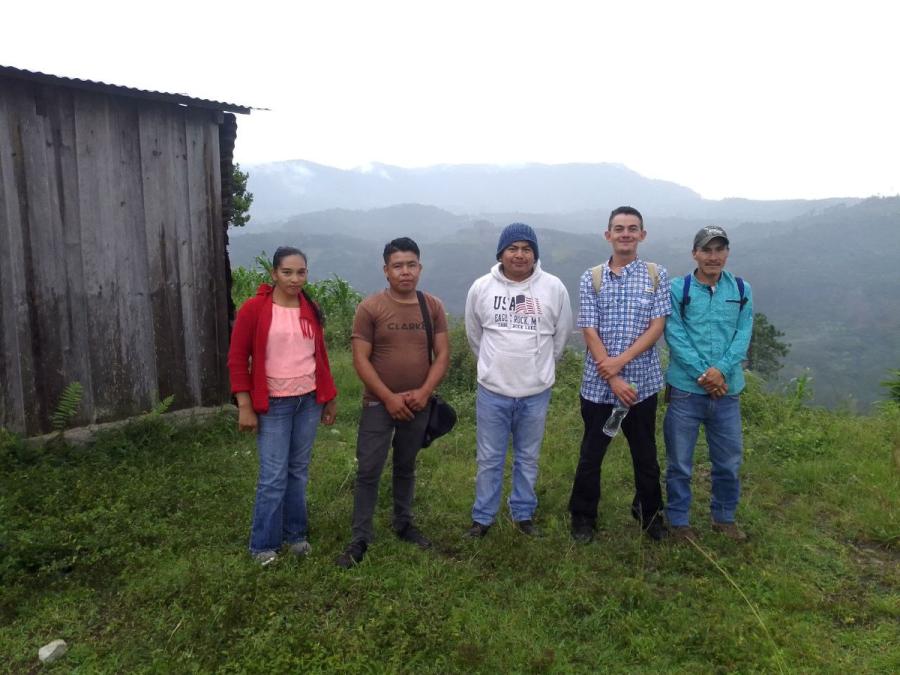
By Stephanie Borcea
It has been three months since Berta Cáceres, a Honduran Lenca leader and coordinator of the National Council of Popular and Indigenous Organizations of Honduras (COPINH) was assassinated in her home on March 3, 2016. A long time activist, Cáceres was dedicated to working in defense of the sacred Gualcarque River against the construction of the Agua Zarca hydroelectric dam. Her noteworthy work as an Indigenous and environmental activist is recognized internationally. In 2015, she won the Goldman Environmental Prize for her work in defending Gualcarque River from the construction of the Agua Zarca hydroelectric dam. Prior to her death, Cáceres had spent several months in hiding due to death threats, as well as political persecution with multiple calls for her arrest. Shortly after her assassination, another COPINH member was killed on March 15, 2016. Nelson Garcia was murdered by four gunshots to the face in the Rio Chiquito community.
The worldwide outcry against violence and impunity in Honduras has been strong. Immediate protests at the University of Honduras followed demanding the fulfillment of unkept promises by President Juan Orlando Hernandez to swiftly find and punish the killers. International NGOs urged foreign investors and engineering companies to withdraw funding from the Agua Zarca project. Over 200 human rights, environmental, labor, and nongovernmental groups, including Cultural Survival, sent an open letter to Secretary of State Kerry to encourage his support of an independent international investigation led by the Inter-American Commission on Human Rights. UN Special Rapporteur, Vicky Tauli-Corpuz, expressed her own concern with the lack of follow-up actions by the government. “We cannot rest on our laurels to say the whole thing is finished because that’s not the point,” she said. “The point is this whole issue about the dam still being there...You cannot delink the fight of Indigenous people for their lands, territories and resources from the violence that’s committed against Indigenous women (and men), especially if this is a violence that is perpetrated by state authorities or by corporate security.” Well-known celebrities such as Peter Gabriel and Susan Sarandon are publicly demanding justice in the form of a thorough and impartial investigation on Berta Cáceres’ assassination. Activists are coordinating plans for international protests at every Honduran embassy around the globe on June 15th.
Four suspects have been placed under arrest, one of which is a member of Desarrollos Energéticos S.A. de C.V. (DESA), the Honduran company responsible for the construction of Agua Zarca. Dinant Corporation, an industry that has been transforming lush Central American rainforests into an African-palm plantation has also been involved in suspicious activity on its extractive sites. Between 2009 and 2013 alone, 89 activists like Berta Cáceres have been murdered. The two other suspects arrested included an active and a retired member of the military, Mariano Diaz Chavez and Edison Atilio Duarte Meza.
However, despite these arrests, Cáceres’ family and COPINH have argued that the Honduran Attorney General has not conducted thorough investigations into the masterminds behind the plotting of the crime and has not kept Cáceres' family informed on the progress of the investigation.
The family is demanding the creation of an independent and reliable group of international investigators led by the Inter-American Commission on Human Rights (IACHR) in order to conduct an objective investigation. The Honduran government has not responded to this demand. The IACHR had warned the Honduran government to take action to protect Cáceres prior to her assassination several times; these warnings went unheard. Now the Honduran government is is proposing that it’s newly formed anti-corruption group, the Support Mission Against Corruption and Impunity in Honduras, lead the investigation, although it is not yet fully staffed or operational.
This case has also sparked a debate at the national level in the United States within the 2016 Presidential race, initiating candidates to elaborate on their policies and perspectives on US interventionism in Latin America. Berta Cáceres herself was a strong critic of Hillary Clinton. Before her death she singled out Hillary Clinton for backing the 2009 Honduran military coup that removed democratically elected President Manuel Zelaya from office, "Hillary Clinton, in her book, Hard Choices, practically said what was going to happen in Honduras. This demonstrates the meddling of North Americans in our country. The return of the president, Mel Zelaya, became a secondary issue. There were going to be elections in Honduras. And here, she, Clinton, recognized that they didn't permit Mel Zelaya's return to the presidency."
Clinton's interpretation of the coup has been incongruent on several different occasions. When recently questioned by Democracy Now's Juan González she defended her role in the coup by explaining that the coup was done legally and that officially declaring it a "coup" would cause suspension of all forms of aid to Honduras, including humanitarian. While she explains that her intentions were not to worsen the situation by cutting off aid, this is problematic because the US embassy in Honduras explicitly stated that the coup was both illegal and unconstitutional.
Cáceres’ daughters have been persistent in their demands for a just investigation. Cáceres’ younger daughter, Laura Zuniga Cáceres, gave a heartfelt speech at a candlelit protest:
“My mother has not been killed. My mother has been planted, and she is born and reborn. And this, which they tried to put out today, this fire that is the struggle of the people, the only thing they did was ignite it more, because they tried to put out the fire with gasoline!”
Bertha Zunica Cáceres, the oldest daughter, in an interview with Democracy Now! explained the importance of the Gualcarque River to the Lenca people and why her mother so vehemently opposed the dams construction:
“I believe that the position taken not only by my mother, but also by the Lenca indigenous people and the Honduran social movement, is aimed at preserving the life of the communities and to preserve life, not only for ourselves but for the entire world. It’s very important to understand the difference between the worldview of the Indigenous communities and an extractivist model that really means dispossession, pillage of the natural goods of nature, and, over time, the death of the communities and of their way of life. That is why my mother so fervently and so firmly opposed these projects, because they don’t bring about the supposed development that they talk about. They really represent death for the communities.”
The international community is continuing to step in to support Berta’s family in demanding a fair and neutral trial in order to bring justice to this case. Following the murder of Cáceres, a coalition of international NGOs mobilized their networks and friends, including Grassroots International and Cultural Survival to raise more than $50,000 in support of COPINH and other movements in Honduras.

